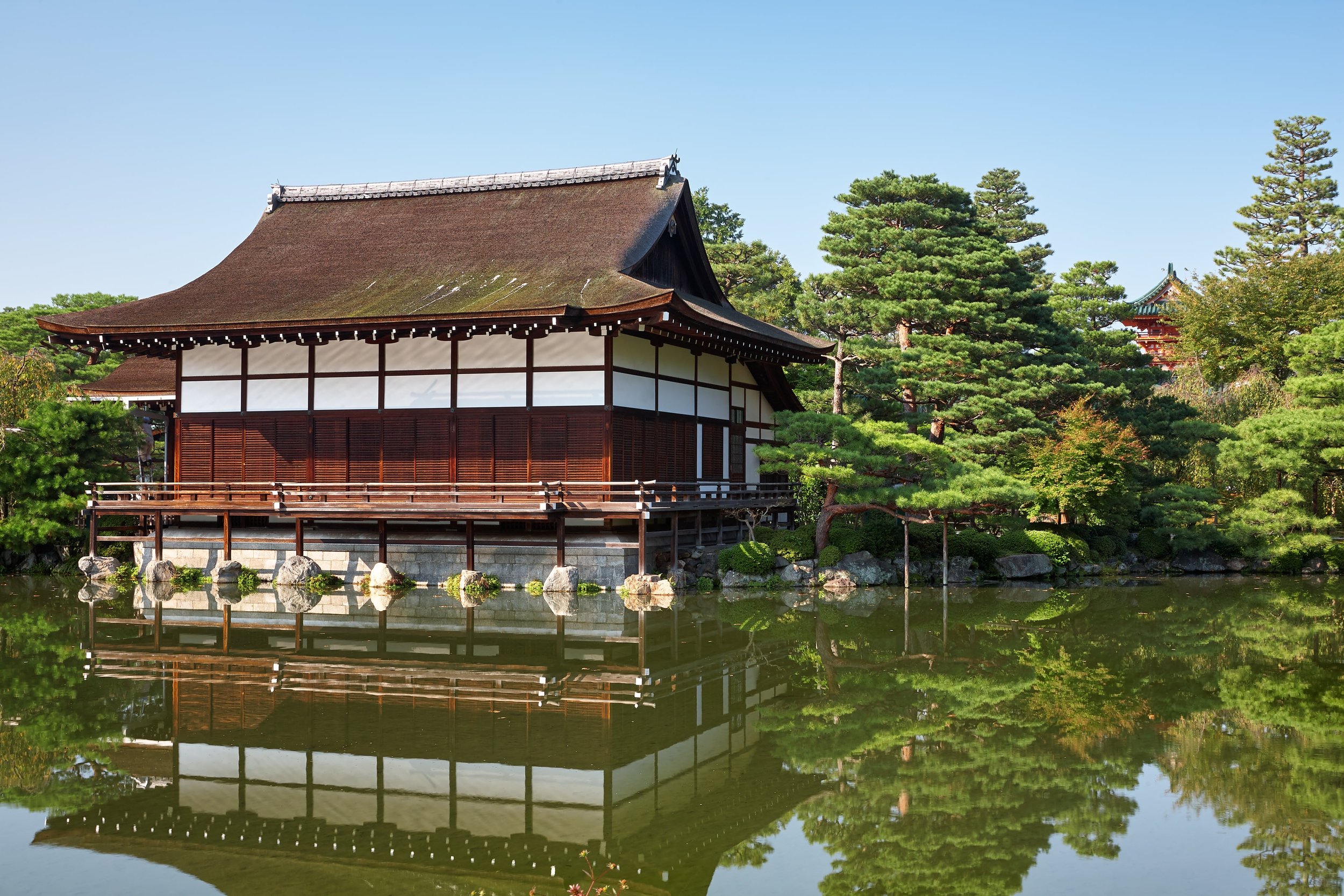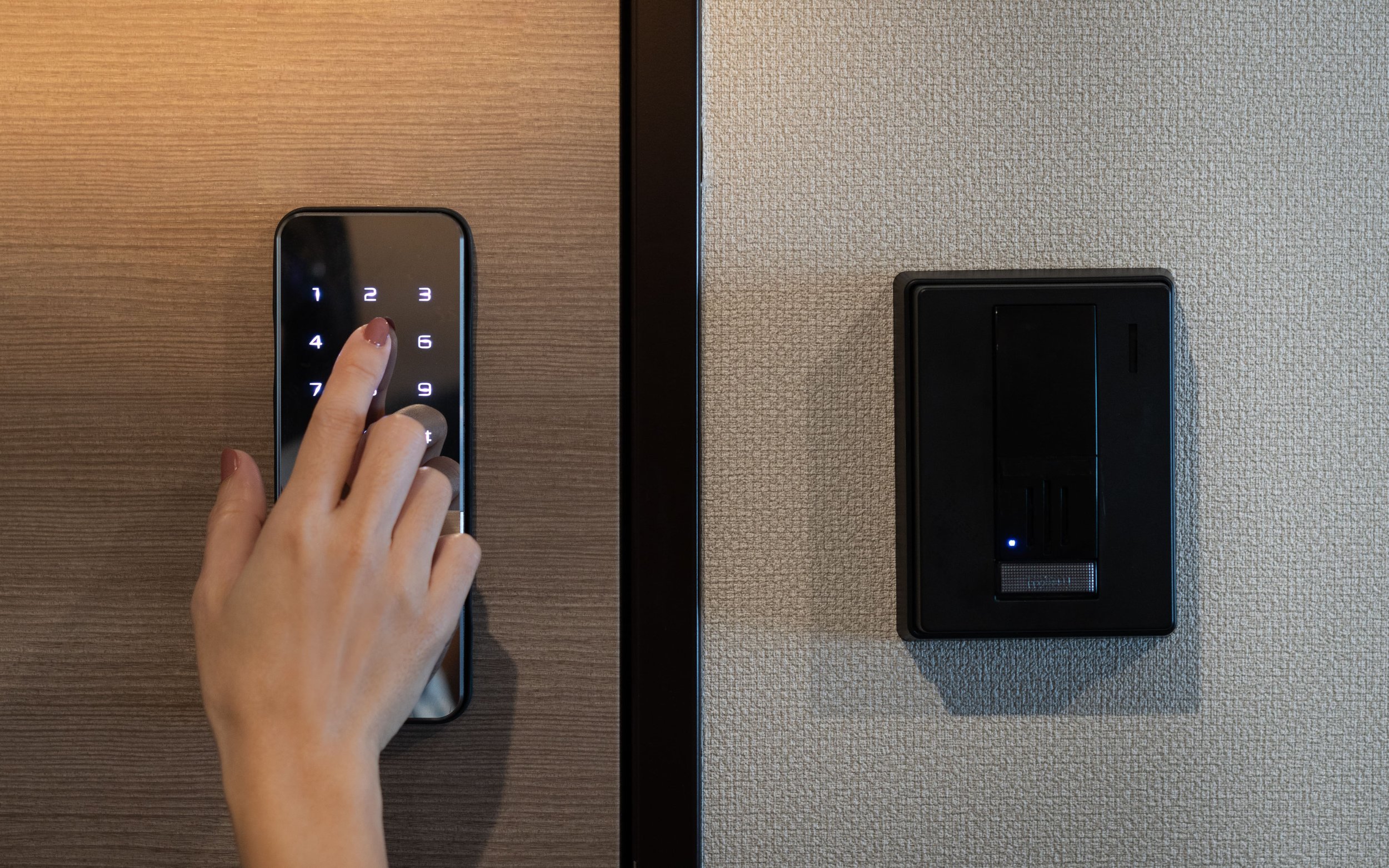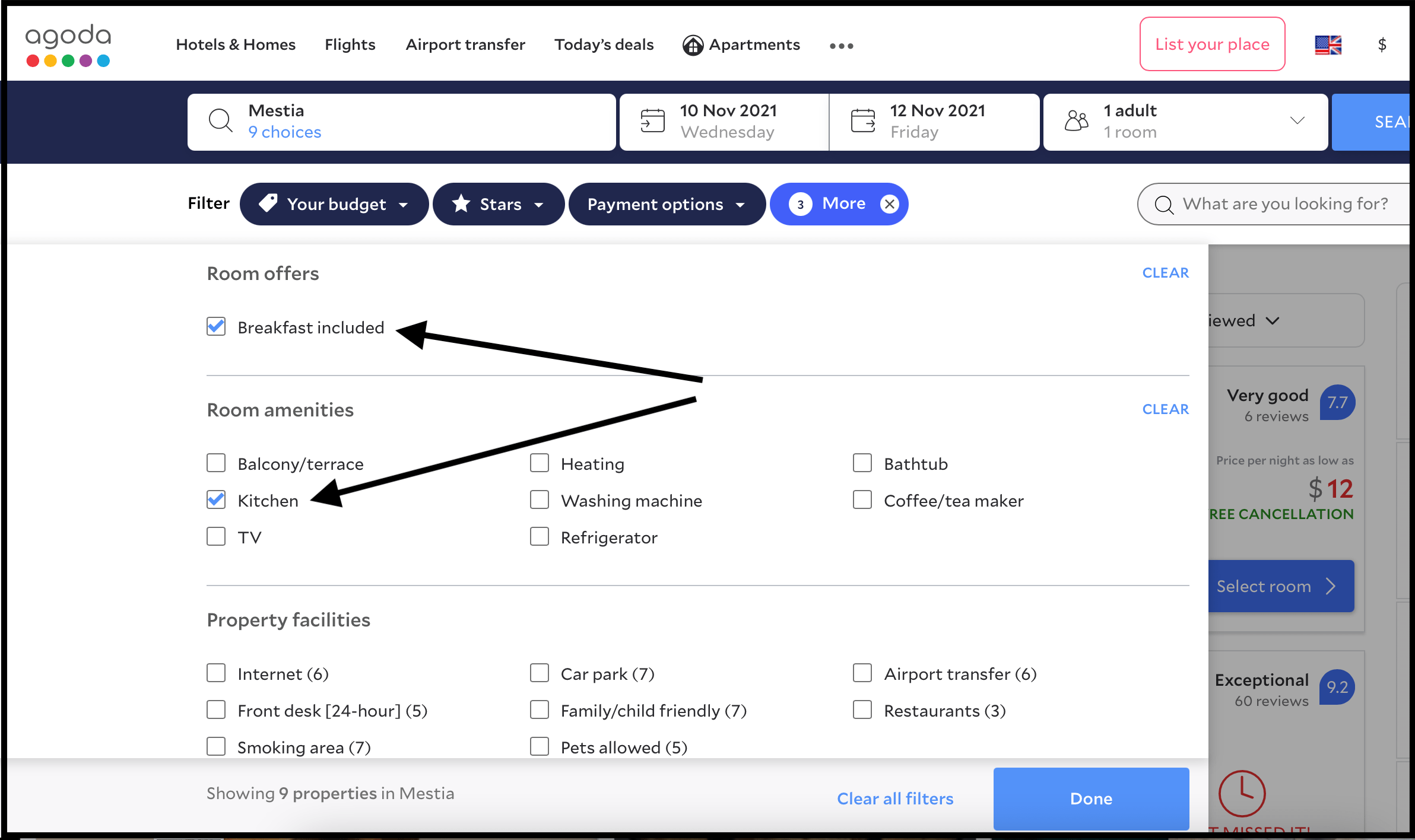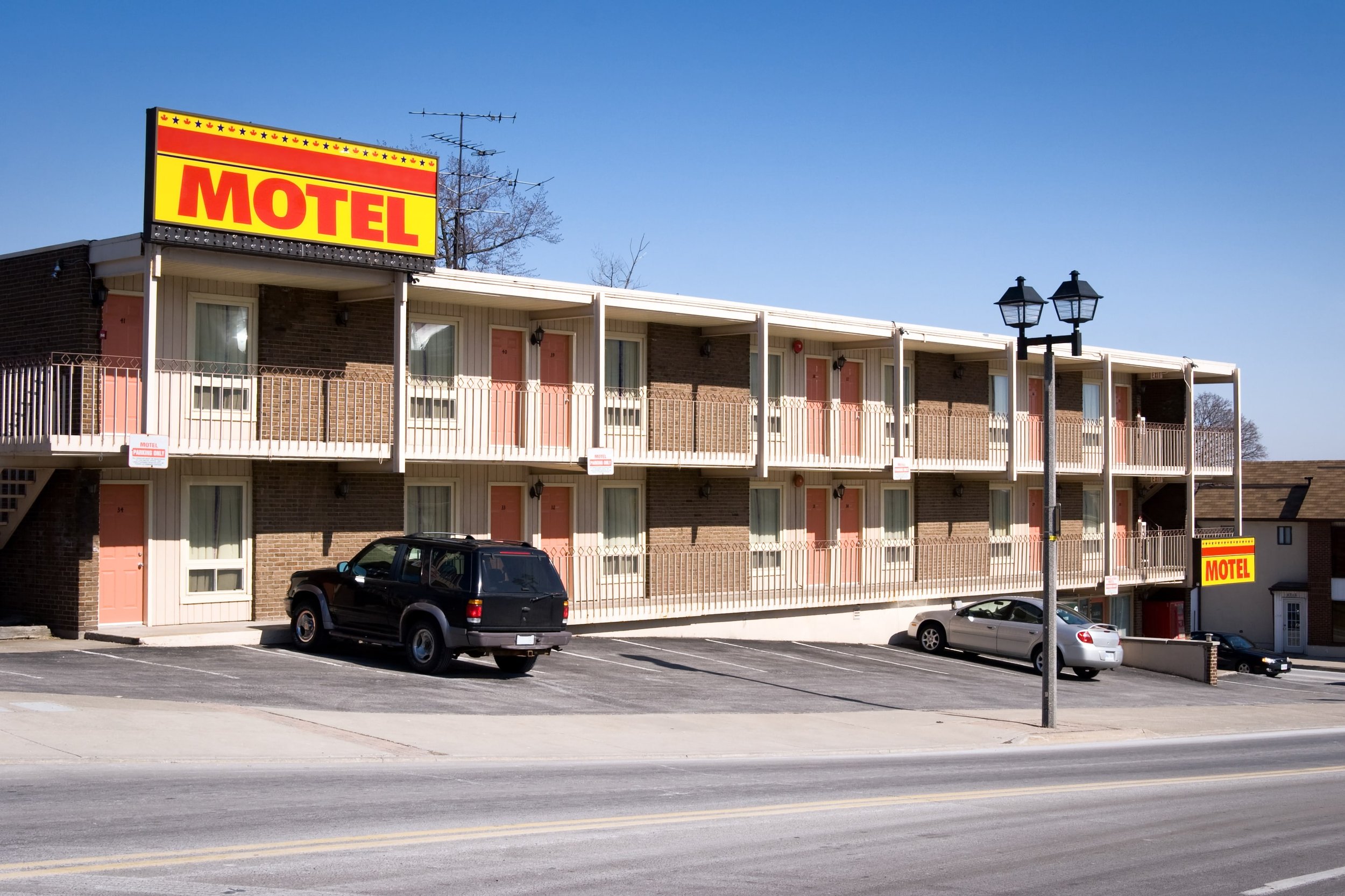Guest Houses vs. Hotels Comparison [Atmosphere, Price, Safety, Amenities]
Guest Houses vs. Hotels
Guest houses are an underrated lodging option.
While hotels are more popular, guest houses can offer unique features that most hotels don’t or can’t. But if you’re accustomed to the standard hotel experience, it can feel a bit intimidating to try something new.
In this guide, we’ll compare guest houses and hotels.
After defining both lodging types, I’ll compare them by atmosphere, price, safety, privacy and amenities, then give my opinion on what type of traveler should choose either type. Lastly, I’ll cover similarities and differences between guest houses, bed and breakfasts, motels, lodges, inns, Airbnb and resorts.
*Agoda.com is one of the best places to find guest houses and hotels online. For today’s deals on guest houses and hotels in your destination, click here.
Table of Contents
Definition Of A Guest House
A guest house (also spelled “guesthouse”) is a type of accommodation where the traveler stays in a home hosted by a local resident. Guest houses are typically less expensive, more personalized and less formal than hotels. In some locations, guest houses are the most common and/or only type of lodging available.
Definition Of A Hotel
As a hotel guest, you can expect a few standard things, like a basic check-in process (present ID to get a room key), standard amenities (breakfast, lobby/common area) and regular checkout hours (between 9 am and 12 pm). While hotel processes are often similar, there are various hotel types (budget to mid-tier to 7-star). Rooms can range from studios to luxury suites, and from jungle bungalows to modern, urban high-rises.
*To see today’s deals on guest houses and hotels, click here.
Guest Houses vs. Hotels Comparison
Let’s compare guest houses to hotels in 5 key categories:
Atmosphere
Price
Safety
Privacy
Amenities
Atmosphere Comparison
Guest House: Better for a “homely atmosphere”
Hotel: Usually better for service and comfort
In general, the atmosphere in a guest house is more homely than the atmosphere in a hotel. Guest houses tend to be family-owned and operated, meaning the “staff” who checks you in, cooks breakfast and cleans your room are often the host and/or their family.
This allows you to experience the local culture from a resident’s perspective (such as day-to-day life, cuisine, language and customs). In a guest house, it’s common for you to share a meal or drink with your host, their family and/or other guests staying in the property.
The drawback to this type of atmosphere is the service may not be as “professional” as you’re accustomed to - not that you won’t be taken care of, but the rules and processes often aren’t as rigid as what you’ll experience in a hotel. For example, it’s common for a guest house host to ask what time you want your breakfast served (rather than assigning a time for you). Many hosts do not “work” set hours. Instead, their schedule is more flexible and based on what their guests need each day.
The same also applies to check-in. For example, after booking a guest house online, it’s common for a host to ask their guest what time they’ll arrive, then adjust preparation accordingly. It’s common for guest houses to lack a formal reception area (unlike in most hotels).
Hotels are usually more standardized. Booking a hotel room is usually the better choice if being “serviced” is important to you. This is ideal if you’re a large group, have children, are on a tight itinerary, or want quick or streamlined services (such as airport pick-up, room service, etc.). Hotels excel in these capacities, as their employees can assist guests with whatever they need.
To find a hotel with a great atmosphere, read listing descriptions and past guests’ reviews before booking. Agoda.com is a great place to find deals on quality hotel rooms around the world. For step-by-step help with finding your ideal hotel on Agoda, click here.
*To see today’s deals on guest houses and hotels, click here.
Price Comparison
Generally, guest houses cost less than hotels.
Travelers have more lodging options than ever before. Hotels range from no-frills budget properties to large, opulent villas. Likewise, there are guest houses at both budget and luxury prices, and everything in between. To learn about the 8 types of guest houses, click here.
If you’re accustomed to the cost of mid to upper-tier hotels, the price you’ll pay for a guest house stay may surprise you. In my experience, expect the nightly rate of a typical guest house to be roughly the same as the cost of the 2 to 3-star hotel rooms in that same area.
Of course, these guidelines are not absolute. Nightly rates depend on multiple factors, such as the type of properties available in an area. Luxury guest house rooms can cost more than budget hotel rooms, and urban guest houses often cost more than rural hotels.
Many budget guest houses, particularly those in cash-based economies (like parts of Eastern Europe, South America and Africa) only accept cash payment. For exactly how pay for your guest house stay, click here.
*To see today’s deals on guest houses and hotels, click here.
Safety Comparison
Generally, hotels are safer than guest houses.
Safety depends on multiple factors (including region, neighborhood, property, etc.), but most hotels offer an additional level of safety compared to most guest houses. Hotels are more likely to employ security staff and provide electronic room key cards, as well as run one or more security cameras on their premises.
Still, booking a hotel does not necessarily ensure the safety of you and your belongings. When looking for a hotel, always research the local neighborhood, read recent guest reviews, and browse room photos prior to booking. When booking a hotel, follow the guidelines covered here. When booking a guest house, follow our step-by-step Guest House Booking Guide.
*To see today’s deals on guest houses and hotels, click here.
Privacy Comparison
Privacy varies based on the property.
Some guest houses offer complete privacy to all their guests, others provide shared features. It’s common for a guest house to have a communal kitchen, courtyard or lounge, meaning you may potentially see your host and other guests each time you enter/exit your room.
This is not necessarily a bad thing, especially if you prefer a social experience (to meet travelers or interact with your host). But if you prefer more privacy (like if you’re on a honeymoon or a family trip), consider a spacious hotel as your first booking option. Generally, mid to upper-tier hotels offer the most privacy.
*To see today’s deals on guest houses and hotels, click here.
Amenities Comparison
Amenities vary in both guest houses and hotels.
You typically get what you pay for when it comes to travel accommodation. Common amenities you can find in a guest house or hotel include breakfast, WiFi and laundry. Less common amenities can include an in-house restaurant and on-site parking. If you want to receive room service during your stay, book a hotel.
Quality guest houses and hotels clean their bedrooms, bathrooms and common areas daily. Hotels provide the basic toiletries (shampoo, body soap, toothpaste) but many guest houses expect guests to bring their own. For the list of 5 things that every traveler should consider bringing to a guest house stay, click here.
While hotels typically provide a power outlet by each bed, many guest houses do not. If you plan to stay in a guest house, consider bringing a power strip with you. For a reasonably-sized power strip, click here.
To find a hotel or guest house that provides breakfast and/or a kitchen/kitchenette, filter your search on Agoda.com by clicking “More” (below the search bar), then select the “Breakfast included” filter under “Room offers” and the “Kitchen” filter under the “Room amenities” tab (screenshot below).
*To see today’s deals on guest houses and hotels, click here.
So, Are Guest Houses Worth Trying?
Every traveler should experience a guest house.
I’ve stayed in guest houses all around the world and recommend the experience to anyone seeking cultural immersion, a relaxed setting, interaction with a local host, and the potential to save money. Overall, it’s a great way to taste local culture in a memorable way.
To learn the 4 reasons to stay in a guest house, click here. For the 8 types of guest houses (with 5 examples of each), click here. For a step-by-step guide on how to find a guest house that suits your exact tastes and budget, follow our Guest House Booking Guide.
*To see today’s deals on guest houses and hotels, click here.
Guest Houses vs. Bed & Breakfasts
Of all the lodging types, guest houses are most similar to bed and breakfasts. Also called a “B&B”, a bed and breakfast is a type of lodging where the host lives in or nearby the property and offers personalized services, including breakfast. Bed and breakfasts tend to attract couples, young adults, smaller families and retirees. They’re typically less popular with solo travelers.
Bed and breakfast properties are typically smaller than guest houses and generally focus more on providing service(s) to their guests. Otherwise, the two lodging types are fairly similar in layout and operation. Many booking sites even categorize them together. To learn about bed and breakfast accommodation, click here.
*To see today’s deals on guest houses and B&Bs, click here.
Guest Houses vs. Motels
Motels usually offer fewer amenities than hotels, and are often designed as stopover lodging for drivers in between destinations (perhaps the best example is the various motels along the historic “Route 66”). Motels are usually located on busy roads and provide parking spaces, as many of their guests arrive with a car.
Because their main focus is to provide a great night’s sleep (plus sometimes breakfast), motel properties typically lack luxury features, but some have a pool or other comfort amenities. Motel guests usually only stay for one or two nights, though some motels offer weekly/monthly rates to attract long stays. Typically, the prices of motel rooms are lower than local hotels.
*To see today’s deals on guest houses and motels, click here.
Guest Houses vs. Lodges
Lodges are typically located in rural areas with few total lodging options. Also sometimes called “cabins” or “huts”, lodges are often meant as stopover resting places for drivers or hikers. They typically lack luxury features, are relatively affordable (nightly rate usually equal to or lesser than local 3-star hotels) and many aren’t listed online. Often, lodges are family-operated and their services are less “formal” than typical hotels.
*To see today’s deals on guest houses and lodges, click here.
Guest Houses vs. Inns
Inns were the original accommodation in many parts of Europe (similar to the caravanserai located along the Silk Road, between East Asia and Europe). While many inns still operate today, they’ve become a less popular choice. Modern Europeans are increasingly looking elsewhere for lodging (hotels, Airbnb, etc.).
For many, the word “inn” conjures imagery of small, rugged establishments operated by innkeepers, at a time prior to automobiles and electricity. In addition to accommodation, many inns function as pubs and event spaces. Many historic inns were built along the Roman Empire’s expansive thoroughfares. You’ll still find many inns playing into their “antique” aspect.
*To see today’s deals on guest houses and inns, click here.
Guest Houses vs. Airbnb
Airbnb is a marketplace where local hosts are able to list practically any type of accommodation for rent (including guest houses). Airbnb properties can range from boathouses to shared rooms to entire mansions. But if someone says they're “renting an Airbnb”, this typically means renting a private or shared space that’s hosted by an individual, not a business. To learn all about Airbnb accommodation, click here.
*For today’s deals on guest houses in your destination, click here.
Guest Houses vs. Resorts
Generally, the advantages of booking a hotel (which we covered extensively above) are amplified when you book a resort. Resorts provide greater privacy, more amenities, higher nightly rates and more safety than the typical hotel will. Resorts also can provide guests with an even higher level of comfort and services.
Consider a resort if you want a high degree of privacy, safety and services, and can afford to pay high nightly rates ($150+ per night). Guest houses are better if you prefer a relaxing, personal experience with a host and other guests, and don’t mind saving money (one night in a guest house can cost 1/5th of a night in a resort).
*To see today’s deals on guest houses and resorts, click here.
Conclusion
Hopefully you found this guide helpful.
There’s no “right answer” in choosing travel lodging. My choice of whether to stay in a hotel or guest house depends on the purpose of my trip, who I’m traveling with, what I’m seeking, and local options available. To learn even more about guest houses, hotels and hostel accommodation, explore our other guides below.
Enjoy your travels!
How To Find Deals On Guest Houses & Hotels
Agoda.com is a great place to find and book guest houses and hotels online. You’ll find many properties for groups, solo travelers, couples and families. To see Agoda’s best deals on guest houses and hotels in your destination, click here. If you’ve never stayed in a guest house before and want a step-by-step guide showing you exactly how to find and book your ideal guest house, use our Guest House Booking Guide.
Learn More About Guest Houses
Introduction To Guest Houses
Get Started With Guest Houses
Guest Houses vs. Hotels Comparison [Atmosphere, Price, Safety, Amenities]
Guest Houses vs. Hostels Comparison [Atmosphere, Price, Safety, Amenities]
Know Before You Go
Find Discounted Hotels
Common Questions & Concerns
Is Agoda Safe And Legit? [Plus How To Avoid Potential Issues]
Is An Agoda Booking Refundable? [Agoda’s Refund Policy Explained]
Get Started With Agoda
Post-Booking Questions
How To Cancel An Agoda Booking [Free Cancellation, Refunds, EasyCancel]
How To Change An Agoda Booking [Dates, Guest Name, Card Details]
Agoda’s PointsMAX Feature Explained [Earn Airline Flyer Miles]
Agoda’s Other Features
Learn About Hostels
Introduction To Hostels
Hostels vs. Hotels Comparison [Atmosphere, Price, Safety, Amenities]
Guest Houses vs. Hostels Comparison [Atmosphere, Price, Safety, Amenities]
Five Reasons Every Traveler Should Experience A Hostel [At Least Once]
![TRVLGUIDES [Learn How To Travel]](http://images.squarespace-cdn.com/content/v1/5e72c8bfe21ad940ba788673/1611885122849-Y9SWGEV3B8CEASJVRT0S/TRVLGUIDES-logo.jpg?format=1500w)













![Taz Zaidi [Author]](https://images.squarespace-cdn.com/content/v1/5e72c8bfe21ad940ba788673/1699301027931-OOLR4Y357BHWY9N6DAAH/taz-zaidi-travel-writer.jpeg)